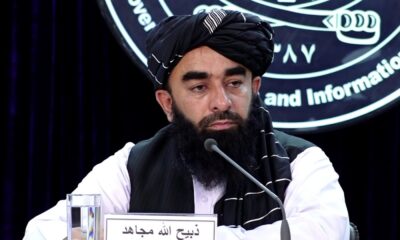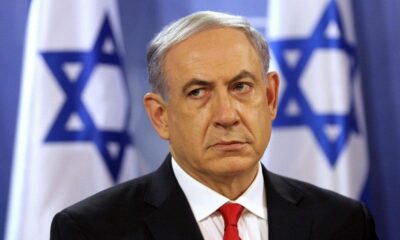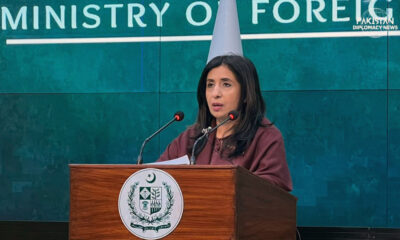World
UN Security Council backs Israel-Hamas ceasefire plan
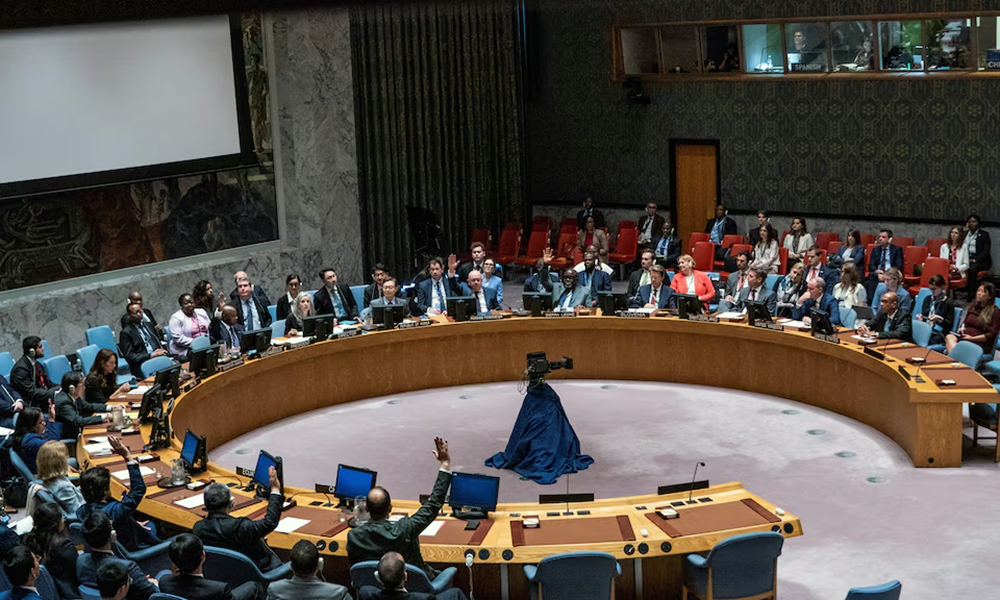
The United Nations Security Council on Monday backed a proposal outlined by President Joe Biden for a ceasefire between Israel and Hamas in the Gaza Strip and urged the Palestinian militants to accept the deal aimed at ending the eight-month-long war, Reuters reported.
Hamas welcomed the adoption of the U.S.-drafted resolution and said in a statement that it is ready to cooperate with mediators over implementing the principles of the plan "that are consistent with the demands of our people and resistance."
Russia abstained from the U.N. vote, while the remaining 14 Security Council members voted in favor of the resolution supporting a three-phase ceasefire plan laid out by Biden on May 31 that he described as an Israeli initiative.
"Today we voted for peace," U.S. Ambassador to the U.N. Linda Thomas-Greenfield told the council after the vote.
The resolution welcomes the new ceasefire proposal, states that Israel has accepted it, calls on Hamas to agree to it and "urges both parties to fully implement its terms without delay and without condition."
Algeria, the only Arab member of the council, supported the resolution because "we believe it can represent a step forward toward an immediate and lasting ceasefire," Algeria's U.N. Ambassador Amar Bendjama told the council.
"It offers a glimmer of hope to the Palestinians," he said. "It's time to halt the killing."
The resolution also goes into detail about the proposal, and spells out that "if the negotiations take longer than six weeks for phase one, the ceasefire will still continue as long as negotiations continue."
ISRAEL'S GOALS
However, it did not contain enough detail for Moscow. Russia's U.N. Ambassador Vassily Nebenzia asked what Israel had specifically agreed to and said the Security Council should not be signing up to agreements with "vague parameters."
"We did not wish to block the resolution simply because it, as much as we understand, is supported by the Arab world," Nebenzia told the council.
Israel's U.N. Ambassador Gilad Erdan was present for the vote, but did not address the council. Instead, senior Israeli U.N. diplomat Reut Shapir Ben Naftaly told the body that Israel's goals in Gaza had always been clear, read the report.
"Israel is committed to these goals - to free all the hostages, to destroy Hamas' military and governing capabilities and to ensure that Gaza does not pose a threat to Israel in the future," she said. "It is Hamas that is preventing this war from ending. Hamas and Hamas alone."
The council in March demanded for an immediate ceasefire and unconditional release of all hostages held by Hamas.
For months, negotiators from the U.S., Egypt and Qatar have been trying to mediate a ceasefire. Hamas says it wants a permanent end to the war in the Gaza Strip and Israeli withdrawal from the enclave of 2.3 million people.
Israel is retaliating against Hamas, which rules Gaza, over an Oct. 7 attack by its militants, Reuters reported.
More than 1,200 people were killed and over 250 taken hostage by Hamas on Oct. 7, according to Israeli tallies. More than 100 hostages are believed to remain captive in Gaza.
Israel launched an air, ground and sea assault on the Palestinian territory, killing more than 37,000 Palestinians, according to Gaza health authorities.
World
ICC issues arrest warrants for Israel’s Netanyahu, Gallant and Hamas leader
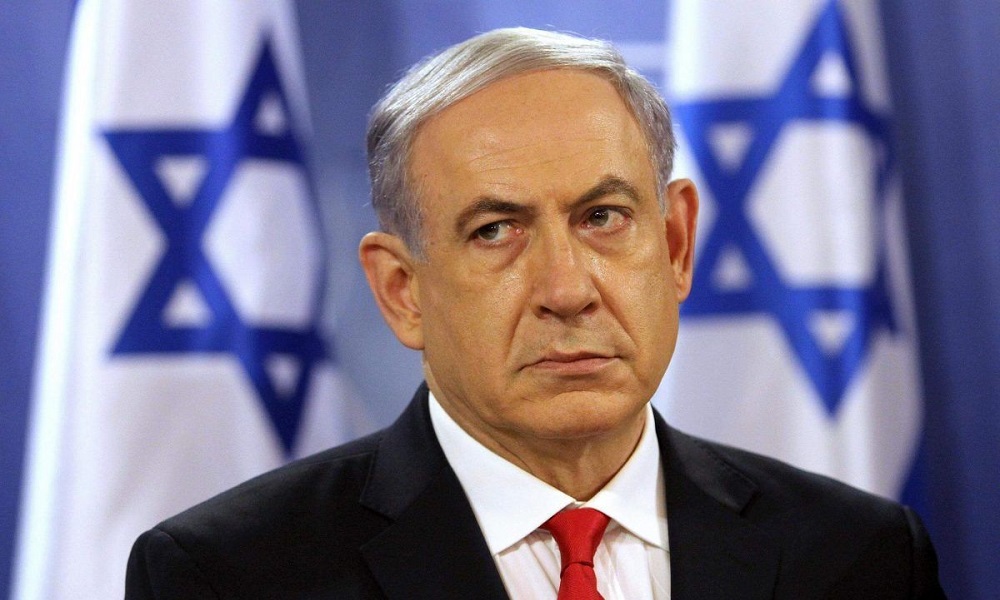
Judges at the International Criminal Court have issued arrest warrants for Israeli Prime Minister Benjamin Netanyahu and his former defence chief, as well as a Hamas leader, Ibrahim Al-Masri, for alleged war crimes and crimes against humanity, Reuters reported on Thursday afternoon.
The move comes after the ICC prosecutor Karim Khan announced on May 20, that he was seeking arrest warrants for alleged crimes connected to the Oct.7, 2023 attacks on Israel by Hamas and the Israeli military response in Gaza.
The ICC said Israel's acceptance of the court's jurisdiction was not required.
Israel has rejected the jurisdiction of the Hague-based court and denies war crimes in Gaza.
Israel has said it killed Al-Masri, also known as Mohammed Deif, in an airstrike but Hamas has neither confirmed nor denied this.
World
US vetoes UN Security Council resolution on Gaza ceasefire

The United States on Wednesday vetoed a U.N. Security Council resolution for a ceasefire in Gaza, drawing criticism of the Biden administration for once again blocking international action aimed at halting Israel's war with Hamas.
The 15-member council voted on a resolution put forward by 10 non-permanent members that called for an "immediate, unconditional and permanent ceasefire" in the 13-month conflict and separately demanded the release of hostages, Reuters reported.
Only the U.S. voted against, using its veto as a permanent council member to block the resolution.
Robert Wood, deputy U.S. ambassador to the U.N., said Washington had made clear it would only support a resolution that explicitly calls for the immediate release of hostages as part of a ceasefire.
"A durable end to the war must come with the release of the hostages. These two urgent goals are inextricably linked. This resolution abandoned that necessity, and for that reason, the United States could not support it," he said.
Wood said the U.S. had sought compromise, but the text of the proposed resolution would have sent a "dangerous message" to Hamas that "there's no need to come back to the negotiating table."
Israel's campaign in Gaza has killed nearly 44,000 people and displaced nearly all the enclave's population at least once. It was launched in response to an attack by Hamas-led fighters who killed 1,200 people and captured more than 250 hostages in Israel on Oct. 7, 2023.
Members roundly criticized the U.S. for blocking the resolution put forward by the council's 10 elected members: Algeria, Ecuador, Guyana, Japan, Malta, Mozambique, South Korea, Sierra Leone, Slovenia and Switzerland.
"It is deeply regretted that due to the use of the veto this council has once again failed to uphold its responsibility to maintain international peace and security," Malta's U.N. Ambassador Vanessa Frazier said after the vote failed, adding that the text of the resolution "was by no means a maximalist one."
"It represented the bare minimum of what is needed to begin to address the desperate situation on the ground," she said.
Food security experts have warned that famine is imminent among Gaza's 2.3 million people.
U.S. President Joe Biden, who leaves office on Jan. 20, has offered Israel strong diplomatic backing and continued to provide arms for the war, while trying unsuccessfully to broker a ceasefire deal between Israel and Hamas that would see hostages released in exchange for Palestinians held by Israel.
After blocking earlier resolutions on Gaza, Washington in March abstained from a vote that allowed a resolution to pass demanding an immediate ceasefire.
A senior U.S. official, who briefed reporters on condition of anonymity ahead of Wednesday's vote, said Britain had put forward new language that the U.S. would have supported as a compromise, but that was rejected by the elected members.
Some members were more interested in bringing about a U.S. veto than compromising on the resolution, the official said, accusing U.S. adversaries Russia and China of encouraging those members.
'GREEN LIGHT'
France's ambassador Nicolas de Riviere said the resolution rejected by the U.S. "very firmly" required the release of hostages.
"France still has two hostages in Gaza, and we deeply regret that the Security Council was not able to formulate this demand," he said.
China's U.N. ambassador, Fu Cong, said each time the United States had exercised its veto to protect Israel, the number of people killed in Gaza had steadily risen.
"How many more people have to die before they wake up from their pretend slumber?" he asked.
"Insistence on setting a precondition for ceasefire is tantamount to giving the green light to continue the war and condoning the continued killing."
Israel's U.N. ambassador Danny Danon said ahead of the vote the text was not a resolution for peace but was "a resolution for appeasement" of Hamas.
"History will remember who stood with the hostages and who abandoned them," Danon said.
World
US imposes sanctions on senior Hamas officials
“Treasury remains committed to disrupting Hamas’s efforts to secure additional revenue and holding those who facilitate the group’s terrorist activities to account.”

The U.S. on Tuesday imposed sanctions on six senior Hamas officials, the U.S. Treasury Department said, further action against the Palestinian militant group as Washington has sought to achieve a ceasefire and the release of hostages in Gaza, Reuters reported.
The Treasury Department said in a statement the sanctions targeted the group's representatives abroad, a senior member of the Hamas military wing and those involved in supporting fundraising efforts for the group and weapons smuggling into Gaza.
"Hamas continues to rely on key officials who seemingly maintain legitimate, public-facing roles within the group, yet who facilitate their terrorist activities, represent their interests abroad, and coordinate the transfer of money and goods into Gaza," Treasury's Acting Under Secretary for Terrorism and Financial Intelligence, Bradley Smith, said in the statement.
"Treasury remains committed to disrupting Hamas's efforts to secure additional revenue and holding those who facilitate the group’s terrorist activities to account."
Hamas condemned the sanctions in a statement that called on the U.S. administration to "review this criminal policy and stop its blind bias towards the terrorist occupation entity."
Among those targeted was Abd al-Rahman Ismail abd al-Rahman Ghanimat, a longtime member of Hamas's military wing who is now based in Turkey, the Treasury said, accusing him of being involved in multiple attempted and successful terrorist attacks, read the report.
Two other officials based in Turkey, a member based in Gaza who has participated in Hamas's engagements with Russia and a leader authorized to speak publicly on behalf of the group and who previously oversaw border crossings at Gaza were also among those targeted, according to the Treasury.
The statement by Hamas said: "The Treasury Department's lists are based on misleading and false statements and foundations aimed at distorting the image of the movement's leaders ... while ignoring the imposition of sanctions on the occupation leaders who commit the most heinous war crimes."
The U.S. on Monday warned Turkey against hosting Hamas leadership, saying Washington does not believe leaders of a terrorist organization should be living comfortably.
Asked about reports that some Hamas leaders had moved to Turkey from Qatar, U.S. State Department spokesperson Matthew Miller did not confirm the reports but said he was not in a position to dispute them. He said Washington will make clear to Turkey's government that there can be no more business as usual with Hamas, Reuters reported.
Hamas-led gunmen attacked Israel in October 2023, killing 1,200 people and taking more than 250 hostages, according to Israeli tallies.
More than 43,500 Palestinians have been killed in Gaza over the past year, Palestinian health officials say, and Gaza has been reduced to a wasteland of wrecked buildings and piles of rubble, where more than two million Gazans are seeking shelter in makeshift tents and facing shortages of food and medicines.
-
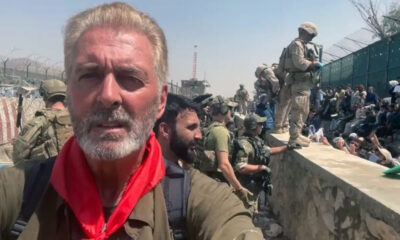
 Latest News5 days ago
Latest News5 days agoOttawa taking detention of Canadian in Afghanistan ‘very seriously’
-

 Sport4 days ago
Sport4 days agoFIFA unveils Innovative Club World Cup Trophy ahead of new tournament in 2025
-
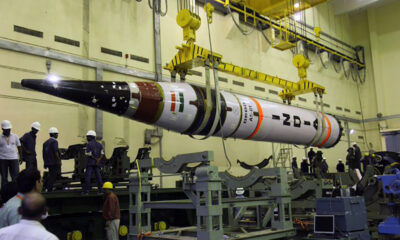
 Regional5 days ago
Regional5 days agoIndia’s successful test of hypersonic missile puts it among elite group
-
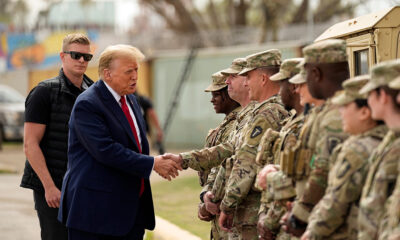
 Latest News5 days ago
Latest News5 days agoTrump team compiling list of military officers responsible for US withdrawal from Afghanistan
-

 Latest News4 days ago
Latest News4 days agoCanada sent 19 failed asylum seekers back to Afghanistan last year
-

 Sport4 days ago
Sport4 days agoAbu Dhabi’s thrilling T10 tournament just days away
-

 World4 days ago
World4 days agoBiden allows Ukraine to use US arms to strike inside Russia
-

 Sport3 days ago
Sport3 days agoAfghanistan beat UAE by 169 runs in U19 tri-series


